The “Archival turn” takes place when the origin of archives is critically analysed and it becomes clear that the legitimized established power dominates the archives while the marginalized voices are absent. The archival ‘turn', in which the archive itself rather than just its contents becomes a subject of study, arises from post-colonial theory (Dirks, 2015; Stoler, 2002). This “turn” encourages archivists to consider the ways in which vested interests and prevailing power structures shape the collection of materials in conventional archives. Web archives collate and curate a different type of material, but also do so within a particular political, social and economic context. Technological ‘enablers' (and constraints) constitute another form of influence as to what ends up in archives. Essentially, the issue is that of ‘power': who exercises it and the tools at hand to exercise it. This is to a large extent decisive in determining what materials are archived. Therefore, web archiving is subject to this “archival turn”, not only to address the power structure inherited from conventional archives, but also to challenge embedded systematic on the Web and selection biases when selecting what to archive from the Web.
In recognition of this, participatory archiving, which involves working in collaboration with different communities to build archives, is underway in conventional archives (Benoit & Eveleigh, 2019; Cook, 2013). Indeed, it has now become one of the main themes of web archival development (Bailey et al., 2017; Bingham, 2019; Brügger & Schroeder, 2017; Dougherty et al., 2010; Gail, 2016; Leetaru, 2015; Schafer & Winters, 2021; Summers & Punzalan, 2017).
Participatory web archiving is an approach deploying established strategies in a new paradigm to tackle inherent limitations rooted in the theory and practice of conventional archiving. Through participation, the “power” is redistributed to various, networked yet often interdependent actors/stakeholders that include community partners, content creators and users. Meanwhile, technologies and infrastructure play significant part as actors themselves, as well as tools to facilitate the power.
However, will participatory approaches lead to more inclusive web archives? A few issues remain absent from the body of work in field of web archive to answer this question. They include: the state and the mechanisms involved in participatory approaches; the ways in which the impacts of the mechanism can be measured and evaluated; the nature and composition of participation partners; the extent to which they have gained the power to shape the process and how that power is redistributed; and the extent to which their participation can address the inherent limitations and reduce or mitigate selection biases.
This talk is to present the early stage of my PhD research that seeks ways in which networked power relations in participatory web archiving, and contradictions and conflicts can be articulated and decoupled, so that opportunities of participation can be exploited to advance the practice of web archiving. The main part of the talk will present the early theoretical work and the results of a survey distributed recently about practices and views on developing web archives with community partners in the field.
References
Bailey, J., Grotke, A., McCain, E., Moffatt, C., & Taylor, N. (2017). Web Archiving in the United States : An NDSA report results of a survey of organizations preserving web content. https://doi.org/10.17605/OSF.IO/R5PQK
Benoit, E., & Eveleigh, A. (2019). Participatory archives : theory and practice.
Bingham, N. (2019). Harnessing the Crowd : Coronavirus topical Collection at the UK. https://blogs.bl.uk/webarchive/2020/04/harnessing-the-crowd-coronavirus-topical-collection-at-the-uk-web-archive.html
Brügger, N., & Schroeder, R. (2017). The Web as history. UCL Press. www.ucl.ac.uk/ucl-press
Cook, T. (2013). Evidence, memory, identity, and community: Four shifting archival paradigms. Archival Science, 13(2–3), 95–120. https://doi.org/10.1007/s10502-012-9180-7
Dirks, N. (2015). Autobiography of an Archive : A Scholar's Passage to India.
Dougherty, M., Meyer, E. T., Madsen, C., van den Heuvel, C., Thomas, A., & Wyatt, S. (2010). Researcher engagement with web archives: State of the art. https://ssrn.com/abstract=1714997
Gail, T. (2016). Web archiving environmental scan. http://nrs.harvard.edu/urn-3:HUL.InstRepos:25658314
Leetaru, K. (2015). Why it's so important to understand what's in our web archives-annotated. https://www.forbes.com/sites/kalevleetaru/2015/11/25/why-its-so-important-to-understand-whats-in-our-web-archives/#6c71e0f73f8c
Schafer, V., & Winters, J. (2021). The values of web archives. International Journal of Digital Humanities, 2(1–3), 129–144. https://doi.org/10.1007/s42803-021-00037-0
Stoler, A. (2002). Colonial archives and the arts of governance [Article]. Archival Science, 2(1), 87–109. https://doi.org/10.1007/BF02435632
Summers, E., & Punzalan, R. (2017). Bots, seeds and people: Web archives as infrastructure. Proceedings of the ACM Conference on Computer Supported Cooperative Work, CSCW, 821–834. https://doi.org/10.1145/2998181.2998345

 PDF version
PDF version
